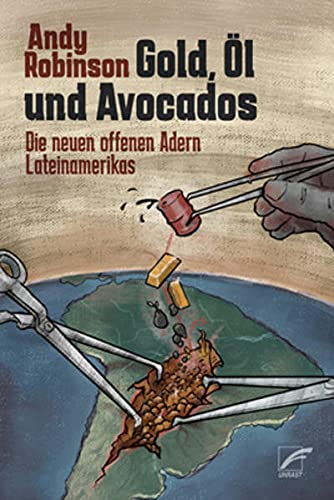This isn't quite what I expected. It's still an interesting book - informative about recent South American politics and economics.
Robinson's narrative focuses more on economics than natural resources as implied in the title. Natural resources (+ commodities) is the warp woven through each chapter.
That said, Robinson's narrative is rather polemical. Don't know why that surprised me but it did. I had not previously read anything he has written. Maybe if I had, I would understand the polemical slant. The polemics didn't bother me. Just wondered why he told the story the way he did. Believe his case would have been stronger without so much of it.
Robinson faithfully recounts the exploitation of South American natural resources and commodities by internal and external economic interests, specifically by North American and Western European multinationals and their co-opted native stooges. His economic arguments about resource extraction follow the analyses of Lenin, Walter Rodney, et al., so not much new mined there. However, he provides abundant examples in South America to demonstrate equivalence with those ideas. It's well-researched, -reported, and -written.
Was not familiar with Eduardo Galeano who the author quotes and cites numerous times throughout the book. If that fact illustrates my ignorance of Latin American late-20th century economic development, that's maybe why I find this book polemical. I'll certainly add "Open Veins of Latin America" to my list.
Ok, so it's not a book about gold, oil and avocados per se. It's about exploiting, managing, distributing, and preserving resources in South America for indigenous and native peoples' benefit. This is heady stuff represented in an easy-to digest and easy-to-read form. It was a book that made me think so that's a big positive in my evaluation.

